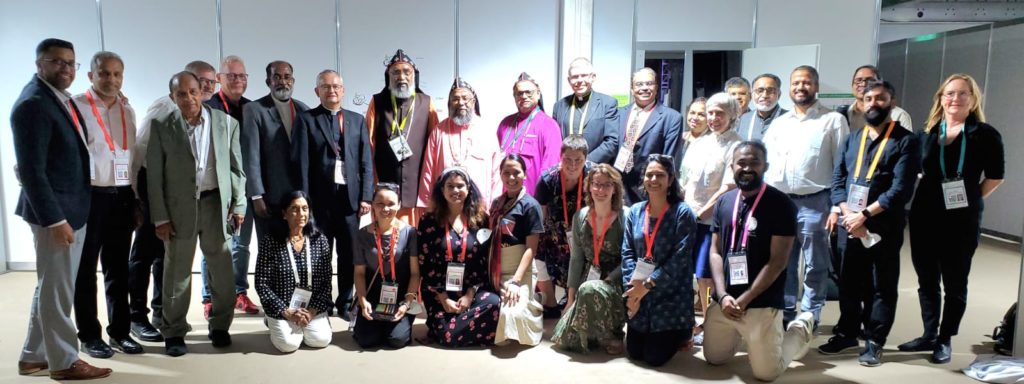At the beginning of September, the Synod of the Mar Thoma Church in India decided to enter into ecclesial communion with the Old Catholic Churches of the Union of Utrecht. The churches of the Union of Utrecht had already taken this decision a few years ago after about 15 years of ecumenical dialog. This overcomes a 1,500-year-old church separation between the churches of Europe and India.
Archbishop Bernd Wallet, president of the International Old Catholic Bishops‘ Conference, said: “Global communion is part of being a Catholic Church. This new communion joins the ecclesial communion that already exists with the Lutheran Church of Sweden, the Independent Church of the Philippines and the Anglican churches. I look forward to continuing our journey together.”
The Mar Thoma Church, known fully as the Malankara Mar Thoma Syrian Church, has over one million members in India, mainly living in the southern state of Kerala in India. However, through emigrants and missionaries, it is connected to many countries around the world.
With this church fellowship, two churches that have a different view of the decisions of the Fourth Ecumenical Council of Chalcedon in 451 enter into communion. The Council of Chalcedon had dealt with the relationship between divine and human nature in Jesus Christ and defined the so-called two-natures doctrine, according to which Christ is regarded as true God and true man at the same time.
During the discussions it became clear that the Mar Thoma Church and the Old Catholic Churches of the Union of Utrecht are in agreement about the fundamental faith regarding the teaching of the Council of Chalcedon. The difference is that the Old Catholic Churches express this belief according to the tradition and language of the Council, but the Mar Thoma Church does not.
It was a consensus between the two churches that the essence of the faith is of primary importance, not the choice of words. The Mar Thoma Church does not reject the Council of Chalcedon or the other later Ecumenical Councils of the first millennium, but holds them in high esteem and respect. Both churches consider the binding nature of the first three Ecumenical Councils, as expressed above all in the Nicene-Constantinopolitan Creed, to be essential. Therefore, they recognise that through their respective traditions and histories they receive the same faith of the early Church, so that the number of Ecumenical Councils they recognise does not affect their relationship to each other.
In this way, the dialogue between the two churches has succeeded in overcoming this obstacle to communion, despite these different theological approaches. This historic step means that ministries and sacraments are mutually recognised and members of one church can participate fully in the ecclesial life of each other.
Both churches were able to find their way to each other because they have their roots in the faith of the early church, and each recognised the other’s view as fully orthodox. They have a rich sacramental spirituality, an ecclesiastical organisation with episcopal leadership and synods, a strong commitment to ecumenism and are closely connected to their respective local cultures.
The ecclesial communion is to be sealed on 10 February 2024 in Kerala, India, on the occasion of a conference of the Malankara Mar Thoma Syriac Church. A European celebration of this ecumenical breakthrough will follow at a later date.

